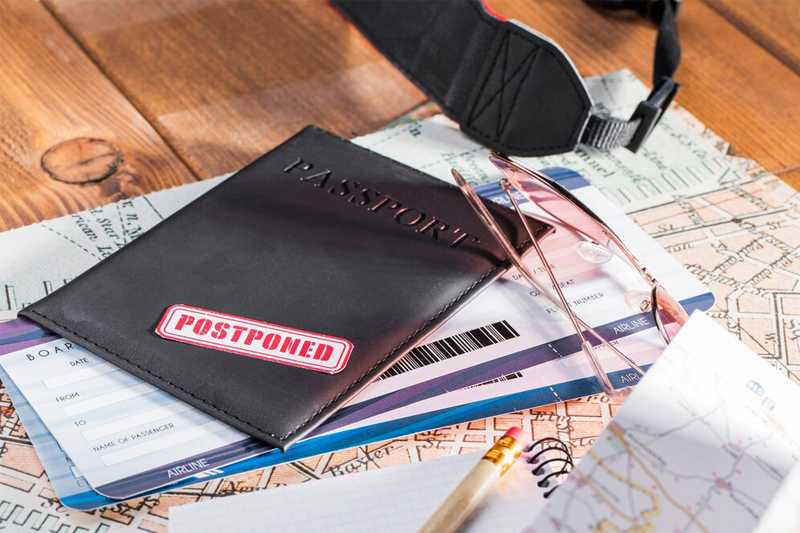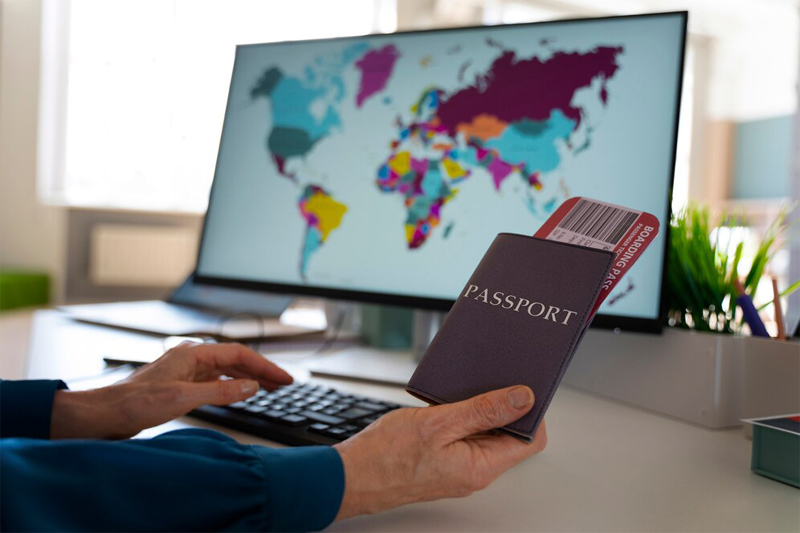Introduction to Travel Visa From Us To Europe
Travel has always been a bridge between cultures, economies, and people. For a long time, American citizens have enjoyed the privilege of a visa-free tour to Europe, due to the strong relationship between the United States and European nations. This freedom of travel has facilitated limitless opportunities for business, cultural exchanges, and personal adventures throughout the Atlantic.
Due to security concerns, the European Union has been forced to take new measures to modify the influx of vacationers due to the ever-changing environment of global travel. Enter the European Travel Information and Authorization System (ETIAS), an application designed to decorate the safety of the Schengen Area, which incorporates 26 European international locations that have abolished passports and all different forms of border control at their mutual borders.

The Shift from Visa-Free Travel to ETIAS Authorization
Beginning in May 2025, American travelers will need to navigate a brand new requirement before traveling to Europe. The ETIAS authorization isn’t always a visa; instead, it’s a visa waiver application similar to the U.S. Electronic System for Travel Authorization (ESTA). It aims to pre-screen travelers and provide them permission to enter the Schengen Zone for brief remains of as much as 90 days within a 180 day duration.
The application technique for ETIAS is absolutely online, making it handy and convenient for travelers. Applicants will need to provide personal records, tour info, and answer unique protection questions. The facts provided can be checked towards European safety databases to verify eligibility for journey. Most programs are anticipated to be processed inside minutes, and the authorization, as soon as granted, could be legitimate for 3 years or until the passport expires, whichever comes first.
In this way, the European Union maintains its borders while welcoming international visitors while also maintaining the security of its borders. Americans will have to adjust the way they plan their trip to Europe as a result of this change. To ensure a smooth and enjoyable European vacation, travelers are encouraged to keep informed as the implementation date approaches.

ETIAS Authorization: Travel Visa From Us To Europe
Understanding ETIAS – Travel Visa From Us To Europe The European Travel Information and Authorisation System (ETIAS) represents a substantial advancement inside the security infrastructure of the European Union. Designed to reinforce the borders of the Schengen Area, ETIAS is a pre-tour screening software for visitors from visa-exempt countries, together with the United States.
What is ETIAS?
ETIAS isn’t a visa; it is a travel authorization system that permits the EU to track visitors who do not require a visa to enter the Schengen Zone. The system is similar to the U.S. ESTA and aims to discover any safety or illegal migration risks posed by travelers before they arrive at EU borders.

How ETIAS Works – Travel Visa From Us To Europe
Travelers must fill out an online application form, providing personal information, tour information, and answering safety questions. It will then pass-check these records against diverse EU safety databases. In most instances, authorization may be granted within minutes, and it will be valid for 3 years or till the passport expires, whichever comes first. The ETIAS authorization will be an obligatory precondition for entry into the Schengen Area.
The Benefits of ETIAS
ETIAS will facilitate border exams, reduce paperwork and delays for tourists, and make certain a coordinated hazard assessment of 1/3-united states of america nationals. It’s designed to be a simple, fast, and tourist-pleasant system , with greater than 95% of applications predicted to result in a fine solution within a few minutes.
Implementation Timeline for US Citizens
ETIAS implementation will start in mid-2025, following the action plan endorsed by EU ministers. A transitional period will observe the launch. Travelers will need to apply for ETIAS authorization at some point, but those without it will not be denied entry if they meet all entry requirements. As a result of this transitional period, there will be a grace period in which tourists must have an authorization to enter the Schengen area.
Preparing for ETIAS
For American residents accustomed to visa-loose travel to Europe, the introduction of ETIAS will require some modifications. However, the technique guarantees to be straightforward and efficient, making sure that the wealthy cultural change and strong transatlantic ties continue to thrive under enhanced security measures.
As we approach the implementation date, it’s vital for potential vacationers to live informed about the ETIAS requirements and to put together consequently for a seamless tour enjoy to Europe beginning from 2025.
Navigating the Schengen Zone: Essential Tips for US Citizens
Traveling to Europe is an exciting prospect, however it comes with its very own set of rules and regulations that may be daunting for even the most seasoned visitor. For US citizens making plans to visit the Schengen Area, information passport requirements, the importance of passport stamps, and the need of wearing identification are important for a hassle-loose journey. Here’s a complete manual to help American vacationers navigate those requirements with no trouble.
Passport Validity Check
Before you even book your flight, the first step is to make certain your passport is so as. Schengen policies require that your passport be valid for at least three months past your supposed date of departure from the Schengen Area⁵. However, it’s noticeably advocated to have six months of validity to avoid any unforeseen issues⁷. This rule is exactly enforced, and failing to comply can result in being denied boarding or access upon arrival. For minors under 16, whose passports are valid for five years, that is in particular crucial to be aware.
The Importance of Getting Your Passport Stamped
Upon getting into and exiting the Schengen Area, it’s vital to have your passport stamped. These stamps serve as reliable information of your tour dates and are used to affirm that you’ve adhered to the 90/180-day rule, which lets in for a stay of up to 90 days inside any a hundred and eighty-day period¹. Without those stamps, you may face problems proving the legality of your stay, need to you be questioned by way of immigration officers. It’s a simple but critical step in ensuring your travels continue to be uninterrupted.
Carrying Your Passport While Traveling Within Schengen Countries
Once you’re within the Schengen Zone, the liberty of movement is one of the notable benefits, permitting you to cross many borders without additional checks. However, it is important to hold your passport with you always. While border controls are commonly absent, they may be reinstated with little to no word in response to safety concerns or other issues². Having your passport reachable isn’t always only a prison requirement but also a practical one, ensuring you’re prepared for any scenario, whether it’s a random take a look at or an emergency.
The Conclusion of Travel Visa From Us To Europe As the European Union prepares to roll out the European Travel Information and Authorisation System (ETIAS) in mid-2025, tourists from the US and over 60 different visa-exempt countries are on the cusp of experiencing a new generation of European travel. This end displays at the implications of ETIAS and its function in shaping the future of transatlantic mobility. ETIAS: A New Chapter in Travel Security The creation of ETIAS marks a massive shift in the EU’s technique to border protection and control. By pre-screening travelers earlier than they come, ETIAS ambitions to perceive and mitigate capacity protection, illegal immigration, or public fitness risks.